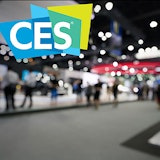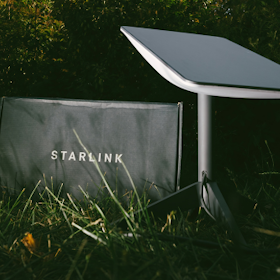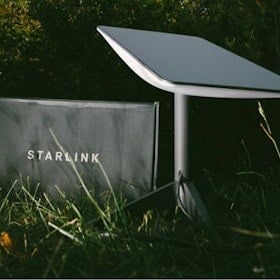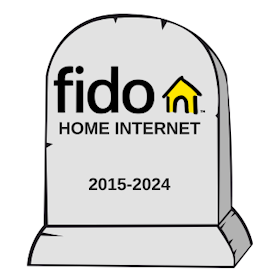
CES 2021: Day 3
The future is definitely here on day 3 at CES 2021. Microsoft president, Brad Smith, uses the company's keynote speech to ask for restraint when technology becomes a weapon of war. SmoothTalker boosts your 4G and 5G cell phone performance. Lastly, we look at the newest AI-enabled products from LG's ThinQ and CLOi lineup.
WhistleOut Canada @ CES 2021
WhistleOut Canada is bringing you daily updates of the coolest smartphone, home gadgets and inventive Canadian companies that we find.CES 2021 - Day 1
CES 2021 - Day 2
CES 2021 - Day 3
CES 2021 - Day 4
WhistleOut TV on YouTube
Every year, the world's biggest and most innovative tech companies converge on Las Vegas for CES. Because of the ongoing COVID-19 pandemic, this year is exclusively a virtual event. This isn't WhistleOut's first year at CES, but the new format lets us visit even more booths and see more of what's to come in 2021. There are hundreds of tech companies showcasing next-generation in more than 40 categories.

War Games: Microsoft Keynote About Technological Responsibility
Microsoft's keynote often highlights their greatest strengths, but this year the company chose to address a recent weakness. The keynote started off with Microsoft president Brad Smith highlighting a cloud computer farm. A quick tour put an emphasis on security and independence from the local power grid. Then it pivoted to discuss the responsibility of governments and corporations when using technology as a weapon.
The "SolarWinds Hack" made public in late 2020 exposed American government institutions and companies like Microsoft. The hacking team responsible is widely believed to be the Russian external intelligence service. Although governments will always spy on each other, Smith insisted that indiscriminate attacks should be off the table, citing that the recent attack disabled hospitals and the World Health Organization (WHO) during a global pandemic.
Smith also quoted former U.S. President John F. Kennedy's "We choose to go to the Moon" speech. In particular, he reminds us ". . . all technology has no conscience of its own. Whether it will become a force for good or ill depends on man." The presentation referenced War Games—a movie also made during the Cold War—as an example of the potential consequences when automation removes the human equation from war. The movie was instrumental in the United States creating a stronger response to cybersecurity.
Smith called on technology corporations to insist that countries refrain from attacking infrastructure. Although he quoted Kennedy's timeless speech, it's unfortunate that he didn't provide a moonshot—a definable goal that tech companies, countries and citizens alike could strive to achieve.

Canadian Tech: SmoothTalker Cell Signal Booster
Here is something that's right up our alley here at WhistleOut Canada.
Even though Bell, Rogers and Telus cover more than 97% of the Canadian population with wireless signal, dead zones can exist deep inside buildings and far into the wilderness. To address the problem of weak signals, SmoothTalker created the first FCC- and ICAN-approved digital mobile amplifier two decades ago. Today, SmoothTalker cellular signal boosters can be used on RVs, transport trucks, deep-wilderness cabins or even in the urban jungle where there's a lot of wireless interference.
Even after people start going back to working in offices, studies show that many Canadians will continue working remotely. Wherever your office is, you're going to need a data signal. SmoothTalker products highlighted at CES 2021 bring new boosting kits to RVs, trucks and the home, as well as a rapid-charging cradle with an integrated antenna connector.
SmoothTalker originated in Canada and continues to manufacture its products here. The tech inside boosts cellular signal bands, so you should see an improvement in signal whether you're using 4G LTE or 5G. You can buy SmoothTalker signal boosters through their website or at retailers like The Source, Home Depot and Amazon. We're told the products are simple to set up and use, but we're hoping to get our hands on one for a full review.

Smart Home: LG ThinQ and CLOi
LG ThinQ branding is almost a decade old, but since 2017 it's been used to identify all of its smart devices that utilize advanced artificial intelligence (AI) to personalize your experience. Today, you can control your whole house from the ThinQ smart home app on your phone; ask the fridge to make more ice, preheat the oven and get notified when the washing machine cycle is complete.
That same LG washer also uses ThinQ AI to detect the type of fabric inside. LG claims that most people just hit the "normal" cycle when washing clothes or linens (something I'm guilty of, too), so the washer detects the load and adjusts the cycle accordingly. It will even communicate with a matching LG dryer which cycle it should use. This is all automated or managed through the ThinQ smartphone app.
Not to be overshadowed, the LG CLOi family of personal service robots are seemingly transported from the future to be our personal assistants in the real world today. LG has created a suite of models each designed for a narrow branch of functions.
One of the new models being released in North America this year is the LG CLOi UV-C robot. CLOi UV-C is designed for use in public places with high-touch, high-traffic areas. Following the COVID-19 pandemic, hygiene and sanitation is of great concern for consumers. Busy places like hotels and restaurants can use the robot to disinfect a room. Think of it like a Roomba, but instead of cleaning dirt on the carpet, it blasts harmful bacteria from touchable surfaces.
Unlike most models in the CLOi family, the UV-C robot doesn't have a friendly face on its display screen. Probably a good idea, since the UV-C light it uses can be harmful to people. The room must be vacant while the bot does its job. There are a number of safety measures in place including human motion detection and a big, red "OFF" override button.

Related Articles
Find Better Internet and Phone Plans
Hundreds of internet plans unpacked. All the facts. No surprises.
Internet Providers by Provinces and Territories
- Internet in Alberta
- Internet in British Columbia
- Internet in Manitoba
- Internet in New Brunswick
- Internet in Newfoundland and Labrador
- Internet in Northwest Territories
- Internet in Nova Scotia
- Internet in Nunavut
- Internet in Ontario
- Internet in Prince Edward Island
- Internet in Quebec
- Internet in Saskatchewan
- Internet in Yukon Territory




















































